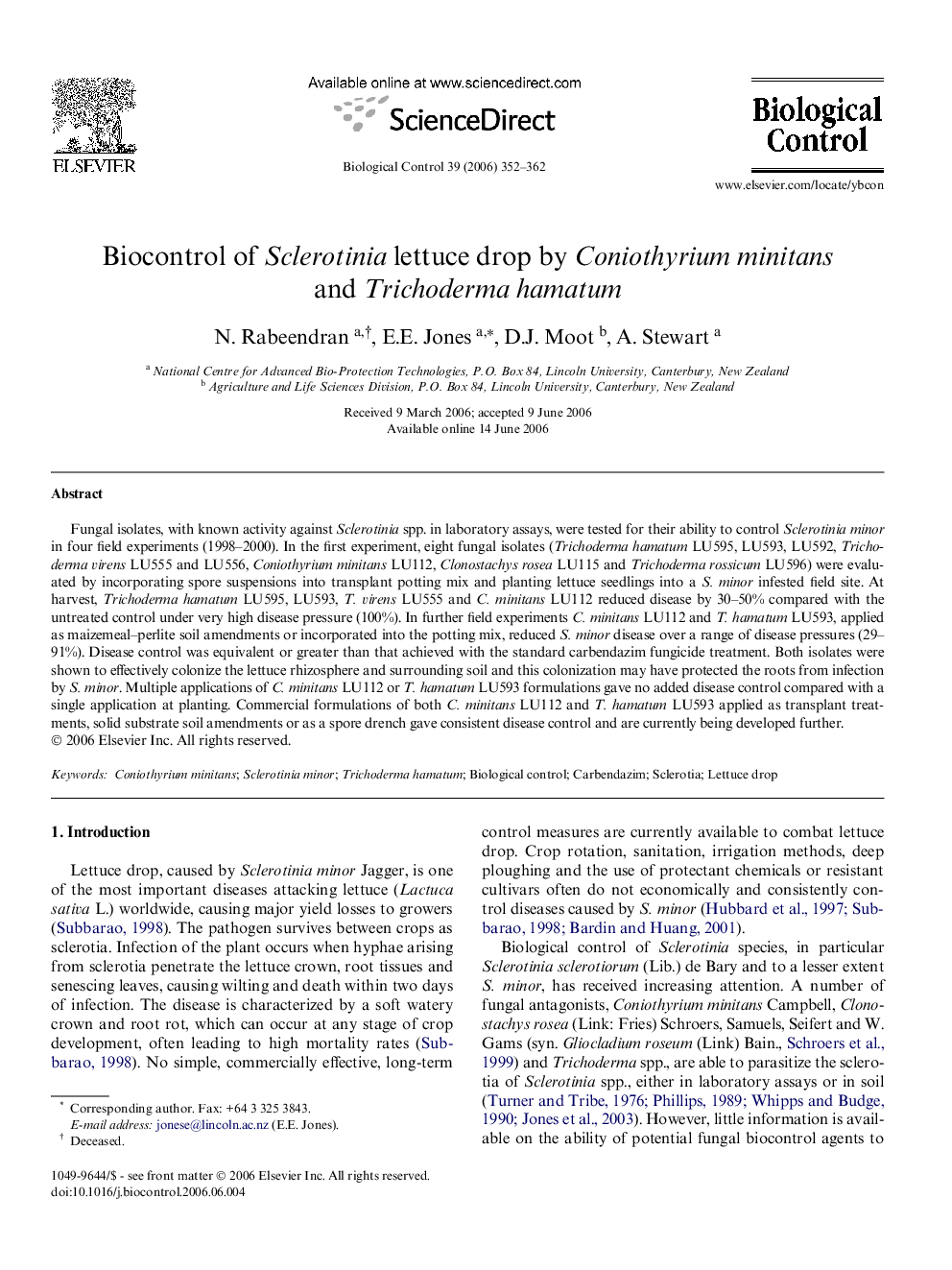| Article ID | Journal | Published Year | Pages | File Type |
|---|---|---|---|---|
| 4505383 | Biological Control | 2006 | 11 Pages |
Fungal isolates, with known activity against Sclerotinia spp. in laboratory assays, were tested for their ability to control Sclerotinia minor in four field experiments (1998–2000). In the first experiment, eight fungal isolates (Trichoderma hamatum LU595, LU593, LU592, Trichoderma virens LU555 and LU556, Coniothyrium minitans LU112, Clonostachys rosea LU115 and Trichoderma rossicum LU596) were evaluated by incorporating spore suspensions into transplant potting mix and planting lettuce seedlings into a S. minor infested field site. At harvest, Trichoderma hamatum LU595, LU593, T. virens LU555 and C. minitans LU112 reduced disease by 30–50% compared with the untreated control under very high disease pressure (100%). In further field experiments C. minitans LU112 and T. hamatum LU593, applied as maizemeal–perlite soil amendments or incorporated into the potting mix, reduced S. minor disease over a range of disease pressures (29–91%). Disease control was equivalent or greater than that achieved with the standard carbendazim fungicide treatment. Both isolates were shown to effectively colonize the lettuce rhizosphere and surrounding soil and this colonization may have protected the roots from infection by S. minor. Multiple applications of C. minitans LU112 or T. hamatum LU593 formulations gave no added disease control compared with a single application at planting. Commercial formulations of both C. minitans LU112 and T. hamatum LU593 applied as transplant treatments, solid substrate soil amendments or as a spore drench gave consistent disease control and are currently being developed further.
